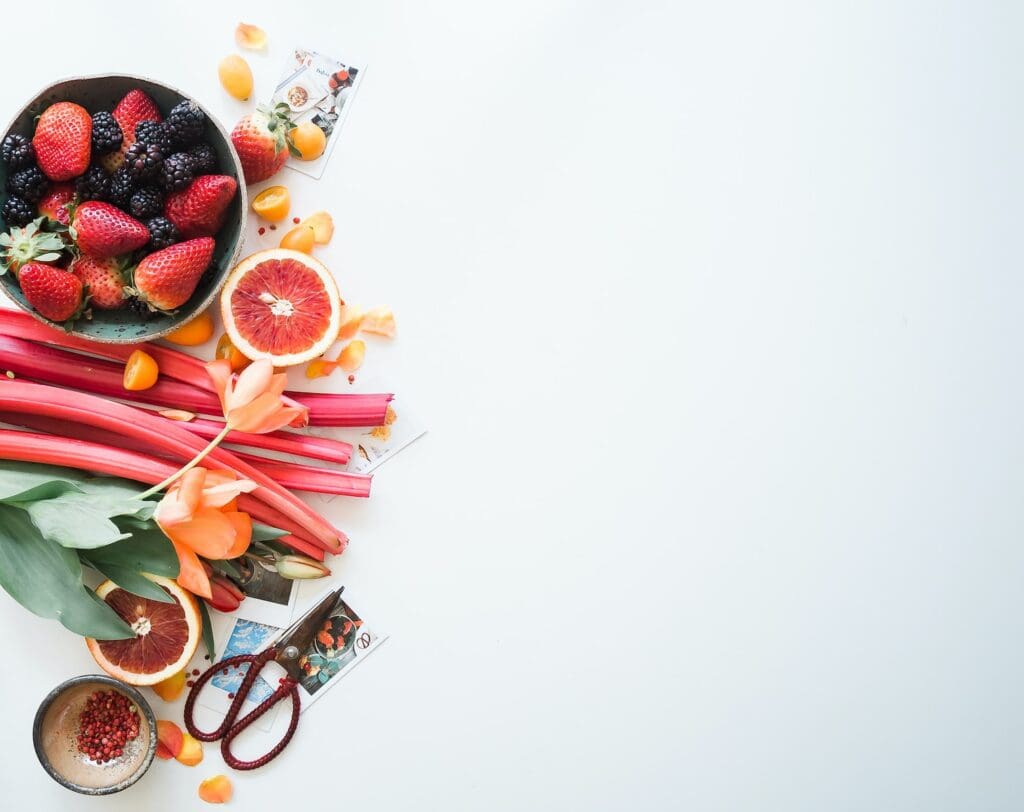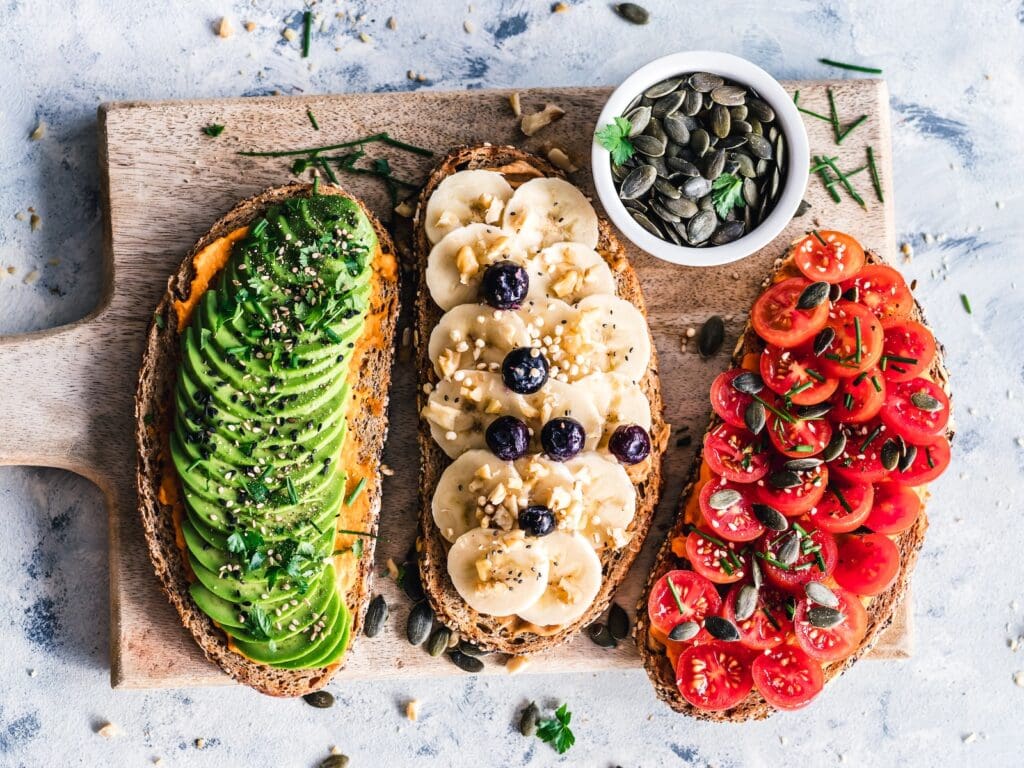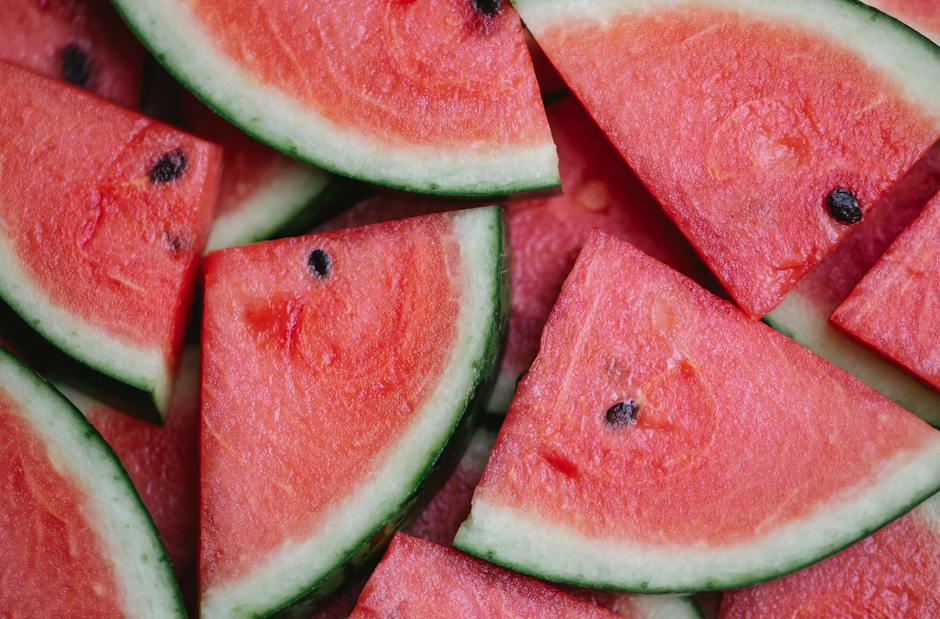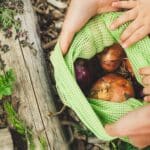Uncovering the Low Waste Vegan Lifestyle
Veganism is a noble choice that already leads to a multitude of environmental benefits.
But have you ever though about a lifestyle that marries the conscientious paths of veganism and low-waste living together?
It’s bold. It’s challenging. And it’s precisely what we’re discussing today. Let’s unfold this interesting concept together.
Here’s to enriching our lives with wholesome, sustainable practices.

What does a low waste vegan lifestyle mean?
The rise of the low waste movement
In recent years, environmental awareness has been on the rise.
As individuals become more conscious of their impact on the planet, various eco-friendly lifestyles have gained popularity.
One such lifestyle is the low-waste movement, which aims to reduce waste generation and adopt sustainable practices. When combined with a vegan lifestyle, it creates what is referred to as a “low waste vegan lifestyle.”
Understanding the vegan lifestyle
Veganism is a way of living that seeks to exclude the use of animals for food, clothing, or other purposes.
Vegans choose to consume plant-based foods, avoid products derived from animals, and support ethical and sustainable practices that prioritize animal welfare.
The connection between veganism and low waste
A low waste vegan lifestyle goes beyond just dietary choices. It encompasses a holistic approach to minimizing our ecological footprint. Here’s how the two concepts connect:
- Food choices: A low waste vegan lifestyle involves consuming plant-based foods sourced from local, organic, and packaging-free options. Opting for a vegan diet reduces the carbon footprint associated with animal agriculture, as well as the waste generated by animal by-products.
- Reducing packaging: Plastic packaging is a significant contributor to environmental pollution. Low waste vegans aim to reduce single-use plastics by opting for bulk food shopping, using reusable containers, and avoiding individually wrapped products.
- Composting: Food waste is a major issue worldwide. Low waste vegans often compost their organic waste instead of sending it to landfills. Composting reduces waste and creates nutrient-rich soil for gardening or community projects.
- Ethical consumerism: Low waste vegans prioritize buying products that are cruelty-free, sustainably made, and come in recyclable or biodegradable packaging. They support companies that align with their values and ensure their purchases have a minimal impact on the environment.
Tips for embracing a low waste vegan lifestyle
If you’re interested in adopting a low waste vegan lifestyle, here are some actionable tips to get started:
- Meal planning: Plan your meals in advance to minimize food waste and ensure you make the most out of the ingredients you buy.
- Choose reusable alternatives: Invest in reusable shopping bags, water bottles, coffee cups, and stainless steel straws to reduce waste generated from single-use items.
- Support local and package-free options: Look for farmers’ markets, bulk food stores, and package-free shops in your area to purchase fresh, local produce without unnecessary packaging.
- Reduce food waste: Use up leftovers, compost food scraps, and freeze surplus produce to minimize food waste.
- DIY household products: Make your own cleaning supplies, beauty products, and personal care items to reduce plastic packaging and chemicals in your home.
| Benefits | Description |
|---|---|
| Reduced environmental impact | By choosing plant-based foods and reducing waste, you contribute to lower greenhouse gas emissions and less pollution. |
| Healthier lifestyle | A low waste vegan lifestyle often promotes a diet rich in whole, unprocessed foods, which can have numerous health benefits. |
| Supports animal welfare | Vegans already prioritize animal welfare, and adopting a low waste lifestyle further minimizes harm to animals and their habitats. |
| Cost savings | Reducing waste and making conscious purchasing decisions can lead to financial savings in the long run. |

Explore the Connection: Is there a link between a less wasteful vegan lifestyle and health?
Understanding the lifestyle: Veganism & low waste living
Without referring to our traditional definitions, let’s briefly touch on the dual concepts of the less wasteful living and veganism.
Picture a life that embraces minimalism, thoughtful consumption and a commitment to environmental wellness. Simultaneously, imagine a commitment to plant-based nutrition, excluding all animal-derived ingredients.
Combine these two, and you’ve got the essence of a low waste vegan lifestyle!
Deciphering the Impact on Health
Physical Health
Vegans typically consume more fruits, vegetables, and whole grains than non-vegans.
They tend to have a lower intake of saturated fat and cholesterol and a higher intake of dietary fiber. Consequently, they often exhibit lower blood pressure and cholesterol levels, and may have a lower risk for certain diseases.(source)
But how does the less wasteful part fit in?
Mind-Body Connection: Staying Conscious
When you adopt a more sustainable, less wasteful lifestyle, you’re making direct decisions about what you consume.
This consciousness can overflow into dietary habits. Can you imagine eating mindlessly when you’ve been so careful to conserve and reduce waste? You make sure every bite counts, enabling a healthier relationship with food.
Affecting Changes: How to Shift to a Less Wasteful Vegan Lifestyle?
I can’t mention the standard recommendations here. But I can tell you, it’s about taking one step at a time, making conscious choices about what you consume. It’s about finding clever ways to use what’s available to you without increasing waste.

Navigating the Roadblocks of a Low Waste Vegan Lifestyle
Finding the Right Ingredients
First up, the hunt for the correct ingredients.
This can become quite a task, especially since our grocery stores are teeming with processed, artificial products. Not everything comes with a “vegan” label stuck on it, right?
You also need to consider the packaging. Plastics are a no-go, so what alternatives can one use?
- Glass jars
- Cloth bags
- Cardboard boxes
Time Investment
Perhaps another considerable challenge, and quite a key one too, is the time investment involved[1].
Low waste and vegan cooking from scratch can be a bit of a time-guzzler, can’t it?
This lifestyle requires a lot more planning, preparation, and cooking than convenient fast-food pick-ups.
- Planning Your Meals
- Growing Your Own Ingredients
- Commitment to Cooking
Educating Others
Oh, and how can we forget about the Herculean task of explaining your choices to your friends, family, and coworkers?
It can be exhausting and frustrating, can’t it? They might question and italicize the ‘why’ and the ‘how’. The secret sauce?
Patience and understanding[2].
Navigating Dining Out
What about those special evenings when you want a break from the kitchen and fancy dining out? It’s often that one may need to choose between following your zero waste and vegan values or having a pleasant dining experience.
- Researching Restaurant Menus
- Asking About Ingredient Lists
- Carrying Your Own Takeaway Containers
Dealing With Potential Nutrient Deficiencies
Lastly, the potential risk of nutrient deficiencies can’t be overlooked.
The body requires a complex array of nutrients, a majority of which are usually abundant in animal-derived foods. How then, does one manage to fulfill those dietary requirements?
Nutrient Plant-Based Sources
| Nutrient | Plant-Based Sources |
|---|---|
| Vitamin B12 | Fortified plant milks, breakfast cereals |
| Protein | Lentils, chickpeas, tempeh, hemp seeds |
| Iron | Spinach, beans, dried apricots, tofu |
[1] [Maintaining a Vegan Lifestyle Time Commitment](https://www.becomingvegan.ca/time-investment)
[2] [Dealing with the Social Aspects of Veganism](https://www.vegansociety.com)
[3] [Nutrient Sources for Vegans](https://www.nhs.uk/live-well/eat-well/the-vegan-diet/) 
The Practical Guide to A Zero Waste Vegan Lifestyle: Beyond The Obvious
Embrace Mindful Consumption
Living a low waste vegan lifestyle isn’t just about choosing reusable bags over plastic alternatives. It’s about embracing a whole new mindset. The question begs to be asked: Are you ready to rethink your consumption habits?
Reduce Needless Shopping
It’s all too tempting to jump on the latest vegan product or cooking gadget. But, is it necessary? Before buying new items, always ask, “Do I really need this?”
Go For Whole Foods
Did you know that simple dietary choices can actually lower your waste production? Let’s examine this a bit:
| Food Type | Waste Produced |
|---|---|
| Whole foods | Minimal to None |
| Processed vegan foods | Significant |
Home Cooking: The Secret Weapon
When it comes to reducing waste and eating healthily, preparing your meals from scratch is a win-win. Cooking with whole foods not only eliminates the need for packaged foods but also gives you the power to control what goes into your meals.
- Cook in large batches: Cook a larger amount than required and freeze the leftovers in reusable containers for future meals.
- DIY Vegan Staples: Learn how to make your vegan staples at home, like nut milk or tofu. It’s more eco-friendly and allows you to avoid packaging waste.
Upcycle And Recycle
Interested in making the most of what you already own? Upcycling and recycling can be your best companions on this journey.
Get Creative With Leftovers
A little creativity can go a long way in reducing food waste. Leftover vegetables can become an appetizing stir fry, while overripe fruits can be transformed into delicious smoothies or home-baked treats.
Recycling: Do It Right
While recycling might seem straightforward, not everything can be put into the recycle bin. Understanding what and how to recycle effectively is vital in your low waste vegan journey.
Sources:
[EarthEasy](https://www.eartheasy.com/) | [VeganLife](https://www.veganlifemag.com/) | [Recycling Guide](https://www.recyclenow.com/recycling-knowledge/how-is-it-recycled) 
A Fresh Perspective on Conscious Consumption
Going zero waste and vegan isn’t merely about carrying reusable bags. It’s a paradigm shift. Are you prepared to revisit your current consumption patterns?
Less is More: Reconsidering Shopping Habits
While being inclined towards the newest vegan products may be appealing, it’s crucial to take a step back. Consider, “Is this a need or just a want?” By curtailing unnecessary purchases, the pile-up of future waste can be avoided.
The Impact of Dietary Choices on Waste
Did you realize how much your food preferences can influence waste? Let’s observe this:
| Food Category | Waste Generation |
|---|---|
| Whole foods | Minimal to None |
| Processed vegan foods | Considerable |
Choosing whole foods over processed ones can contribute to your well-being and help curtail package waste. By opting for fresh produce, grains, and legumes, we can lower our environmental impact and foster a greener lifestyle.
Home Cooking: A Powerful Tool
The dual benefit of zero waste and a healthy diet can be achieved by cooking from scratch. Cooking with whole foods eliminates the necessity for packaged ones, and offers you total control over your meals. Cooking in large quantities and reserving leftovers in reusable containers can prevent food waste and ensure you have handy meals ready. Moreover, mastering homemade vegan essentials like nut milk or tofu can aid in reducing packaging waste and bolster an environmentally-friendly approach.
Maximize Use and Minimize Waste: Upcycle and Recycle
Wanting to exploit what you own to the fullest? Reusing and recycling can be your trusted allies.
Innovation in the Kitchen: Using Leftovers Creatively
Creativity can be instrumental in waste reduction. Surplus vegetables can morph into a mouthwatering stir-fry, and ripe fruits can transform into tasty smoothies or freshly-baked goodies. This ingenious utilization of leftovers minimizes waste and optimizes food usage.
A Guide to Practicing Recycling Correctly
Though recycling might appear simple, not all items are recyclable. Grasping what and how to recycle effectively is crucial. Educating yourself about proper recycling ensures that the items recycled are processed rightly, enhancing the likelihood of successful recycling and minimizing contamination.
In summation, the journey to embody a green, vegan lifestyle is more profound than superficial alterations.
It demands a shift in attitude, conscientious consumption patterns, and being open to reassessing our choices.
By lessening unnecessary purchasing, placing emphasis on whole foods, home cooking, and practicing effectual recycling, we can participate actively in reducing waste and cultivating harmony with Mother Earth.
In my eyes, embracing this lifestyle is a considerate and sustainable way to exist.





